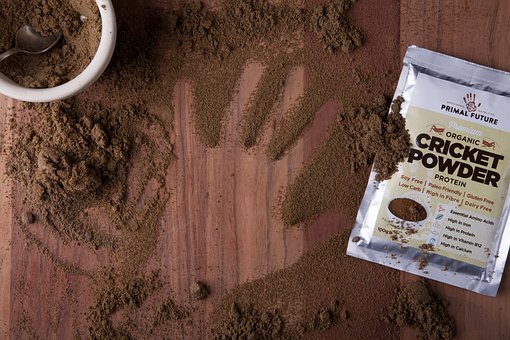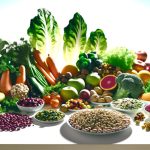If you are a vegan, you may want to include a vegan protein powder as part of your diet, especially if you are an athlete.
You can decide if you would benefit from adding a vegan powder by considering how much protein you need and comparing that with how much protein you get from plant foods like tofu, beans, nuts, seeds, and meat substitutes.
If you are having difficulty getting a good quality plant based protein during a meal, you may want to try a protein powder to help.
Protein powders that are vegan are made from sources that don’t include animals, such as soy, hemp, pumpkin seed, and brown rice.
When you are looking at different protein supplements to purchase, it is important to consider the following: what is in the supplement, what kind of protein it is, how much protein it provides, and if the supplement has been third-party tested.
Here are the best vegan protein powders.
Pea Protein
Pea protein powder is made from yellow split peas, it is not made from sweet green peas.
A quarter-cup serving of pea protein powder contains 21 grams of protein and 100 calories. It is low in methionine like other legumes.
Pea protein is especially high in three essential amino acids, leucine, isoleucine, and valine. These amino acids are important for muscle health and stimulating your body to create more muscle protein.
A study found that those who ate pea protein had much greater gains in muscle mass and strength compared to those who didn’t eat any pea protein. One study found that people who ate pea protein powder twice a day (including after working out) gained more muscle mass and strength than those who didn’t eat any pea protein. The group that took the placebo had an 8% increase in bicep muscle thickness, while the group that took the experimental drug had a 20% increase.
Additionally, pea protein was shown to produce similar muscle gains to whey protein. Pea protein also seems to have an effect on fullness and blood pressure, according to both animal and human studies.
Pumpkin Seed Protein
A 28-gram serving of unflavored pumpkin seed protein powder provides around 103 calories and 18 grams of protein. Since it is lacking in the essential amino acids threonine and lysine, it is not a complete protein.
While pumpkin seeds are not as high in protein as some other nuts, they are still a very nutritious food, supplying high amounts of magnesium, zinc, iron and other minerals, as well as beneficial plant compounds.
There is limited evidence to suggest that pumpkin seed protein possesses antioxidant and anti-inflammatory properties.
When rats with liver disease were given pumpkin seed protein instead of casein (milk) protein, certain markers of liver health improved. The rats that ate pumpkin seed protein had 22% less “bad” LDL cholesterol and up to 48% more antioxidant activity in their blood than the rats that ate casein.
A 28 gram serving of brown rice protein powder has 107 calories and 22 grams of protein. This food is not high in the amino acid lysine, but it is a good source of BCAAs, which helps support muscle building.
A study found that brown rice protein powder may help with muscle growth and is similar to whey protein. In an 8-week study, young men who ate 48 grams or 1.6 ounces of rice protein powder immediately after weight training three days a week had a 12% increase in bicep muscle thickness, similar to the increase for men consuming the same amount of whey protein powder.
The potential for contamination with the heavy metal arsenic is one problem with rice products. The brand of rice protein powder you choose should test for arsenic levels.
Sunflower Seed Protein
A quarter-cup (28-gram) serving of sunflower seeds has about 91 calories and 13 grams of protein. It also provides muscle-building BCAAs, depending on the brand.
Although it is low in the essential amino acid lysine, it is still a seed. It is also a good source of all other essential amino acids. One way to improve lysine levels is to combine sunflower seed protein with quinoa protein powder.
So far, there are no studies comparing the health effects of sunflower seed protein with other isolated plant protein sources in animals or people.
Sacha Inchi Protein
The sacha inchi protein comes from the seed of the sacha inchi plant, which is native to Peru. The sacha inchi seed is star-shaped and sometimes referred to as a nut. Bacause of it’s rarity, it costs more than regular proteins.
A quarter-cup (28-gram) serving of sacha inchi protein powder has around 120 calories and 17 grams of protein. It is a good source of amino acids, except for lysine.
If you are allergic to soy, diary, whey or gluten this may be the protein powder for you.
Although the study was limited in scope, the results showed that sacha inchi protein powder is just as effective as soy protein powder in supporting protein synthesis in the body, even when given in smaller quantities.
Sacha inchi protein is a good source of the essential amino acid arginine, which your body uses to make nitric oxide.
The presence of nitric oxide causes arteries to broaden, which then leads to more efficient blood flow and lower blood pressure. This vegan protein is unique in that it also contains ALA omega-3 fat, which is good for heart health.
Chia Protein
The seeds of the Salvia hispanica plant, native to South America, are known as chia seeds. Chia seeds have become a popular dietary addition. They can be added to smoothies, porridges, and baked goods, or they can be made into chia protein powder.
A quarter cup (28 gram) serving of chia protein powder has somewhere around 50 calories and 10 grams of protein, depending on the brand. Chia powder contains 8 grams of fiber per serving, as well as high amounts of protein, several vitamins and minerals, including biotin and chromium.
The powdered form of chia may enhance its digestibility. In a test-tube study, the protein digestibility of the raw seed was only 29%, compared to 80% for chia powder. This means that your body can absorb more of the amino acids it needs.
Purium’s MVP Sport
Maximum vegan protein for post-workout support.
- High protein, low calories
- Natural source of digestive enzymes and probiotics
- May reduce cravings and appetite
Packed with 32 grams of protein from peas, pumpkin and brown rice, Purium‘s MVP Sport supports muscle-building recovery without the calories. Digestive enzymes and probiotics allow for easy digestion and assimilation. This organic blend also includes herbs, such as Turmeric, Maca and Chaga Mushrooms, to target joints for extra recovery support.
There are two options: Naturally flavored Vanilla or Chocolate
MVP SPORT: INGREDIENTS
Organic Pea Protein – Contains more usable protein per serving than hemp protein.
Organic Brown Rice Protein – A great source of energy for athletes. Rice protein is also hypoallergenic – meaning it is easier to digest than most sources of protein.
Organic Pumpkin Protein – A low calorie protein that provides dietary fiber, anti-oxidants, minerals and vitamins.
Organic Cocoa Powder – Just 1 tablespoon of unsweetened cocoa powder contains 3 to 9 percent of the recommended daily intake of iron, magnesium and zinc.
Organic Sunflower Oil – Most research shows that including sunflower oil in the diet may help lower cholesterol and “bad” low-density lipoprotein (LDL) cholesterol in people with high cholesterol.
Organic Acacia Gum – A natural gum made from the sap of two Acacia trees.
Organic Guar Gum – Has been used to reduce diarrhea as it is a fiber that may help normalize the moisture content of stool. It may also help reduce the amount of cholesterol that stays in the blood. It may also help decrease appetite.
Organic Moringa Leaf – The Moringa tree is also known as “The Tree of Life.” For a post-workout supplement, moringa oleifera’s complete amino profile makes it a perfect recovery food after grueling workouts and physical strain.
Organic Monk Fruit Extract – Also known as Lo Han Guo. In the same family as cucumber, squash and melons. The extract is nearly 300 times sweeter than sugar.
Organic Acerola Cherry Extract – Acording to the USDA, the fruit of the Acerola Cherry tree can contain up to 85mg of Vitamin C per gram of fresh berry compared to 5mg in a peeled orange.
Organic Chocolate Flavor – Sourced from organic cocoa.
Organic Maca Root – Used by the Andean people for two thousand years, Maca is often cited as the food Inca imperial warriors ate before battle. Maca is an amazing source of energy that has gained widespread attention for its role in improving the libidos of both males and females – this is thought to be due to the optimum levels of nutrients it supplies which are aptly utilized by the body’s endocrine system.
Pink Himalayan Salt – A pure, hand-mined salt that is derived from ancient sea salt deposits, and it is believed to be the purest form of salt available. Regular consumption of Himalayan Pink Salt provides essential minerals, trace elements, balances electrolytes, supports proper nutrient absorption, eliminates toxins, balances the body’s pH, and increases circulation.
Organic Eleuthero Root – A relative of ginseng, this herb is also considered an “adaptogen” – meaning it adapts to help your body either relax or have energy, depending on what it needs. Eleuthero is also thought to help increase mental acuity and is considered a great source of stamina and endurance for athletes. May also support the liver in the cleansing of elimination of harmful toxins.
Cordy-Gen®* Organic Cordyceps Mushroom – Made famous by Chinese runners and swimmers who smashed world records in the 1992 Olympics after using these totally legal and safe mushrooms during their fierce training, these mushrooms helped to give them the strength they needed while also supporting their immune system. Practitioners of traditional Chinese medicine have used Cordyceps to treat fatigue and other ailments for 1,500 years.
Organic Chaga Mushroom – Chaga mushroom has been used in folk medicine for various ailments across northern Europe for centuries. It is energizing and may help to reduce inflammation and increase mental sharpness.
Organic Rhodiola rosea Extract– Rhodiola extracts might help protect cells from damage, regulate heartbeat, and have the potential for improving learning and memory.
DigeZyme®** Digestive Enzyme Blend – A proprietary combination of enzymes that contains amylase (starch hydrolyzing enzyme), protease (protein hydrolyzing enzyme), lipase (fat hydrolyzing enzyme), Cellulase (cellulose hydrolyzing enzyme), and lactase (lactose hydrolyzing enzyme).
Lactospore®*** (Bacillus coagulans) – May increase immune system function and decrease harmful bacteria. Helpful for weight management and digestion.
Organic Turmeric Powder – Turmeric contains the chemical curcumin. Curcumin and other chemicals in turmeric might decrease swelling (inflammation).
Organic Agaricus Mushrooms – Agaricus mushroom contains chemicals that might improve the body’s use of insulin and decrease insulin resistance in people with type 2 diabetes. Some developing research also suggests it might be able to strengthen the immune system and work as an antioxidant.
Organic Black Pepper – increases the bioavailability of the curcumin within turmeric.
*Cordy-Gen® is a registered trademark of Gourmet Mushrooms, Inc.
**DigeZyme® is a registered trademark of Sabinsa Corporation.
***Lactospore® is a registered trademark of Sabinsa Corporation.
Conclusion
Some vegan protein powders can help provide your body with the essential amino acids it needs to support protein synthesis in your body, including those needed for muscle repair and growth.
Proteins found in powders made from grains, legumes, and seeds are typically isolated from the fat and carbohydrate components.
There are many vegan protein powders, but some of the most common ones are pea, hemp, brown rice and soy. As demand for plant-based protein increases, seed protein powders are becoming more widely available. These powders, made from pumpkin, sunflower, chia, and sacha inchi seeds, provide a good source of vegan protein.
Plant proteins are typically not as good as soy and quinoa because they are low in one or more essential amino acids. If you want to make sure you’re getting all the amino acids your body needs, eat a variety of plant foods or buy a powder that contains a blend of complementary proteins.
The nutrition information on supplement packaging varies by brand, so it is important to check the labeling.
Super Amino 23: What you need to know:
Super Amino 23 is a high-quality protein supplement with minimal impact on the body and maximum benefit. These predigested vegan protein tablets can help build lean muscle and burn fat.
This patented formula of 100% natural plant-based essential amino acid proteins were made for everyone; athlete or not. These little white tablets will quickly absorb protein into your muscle – in 23 minutes, to be exact. That’s really fast!









